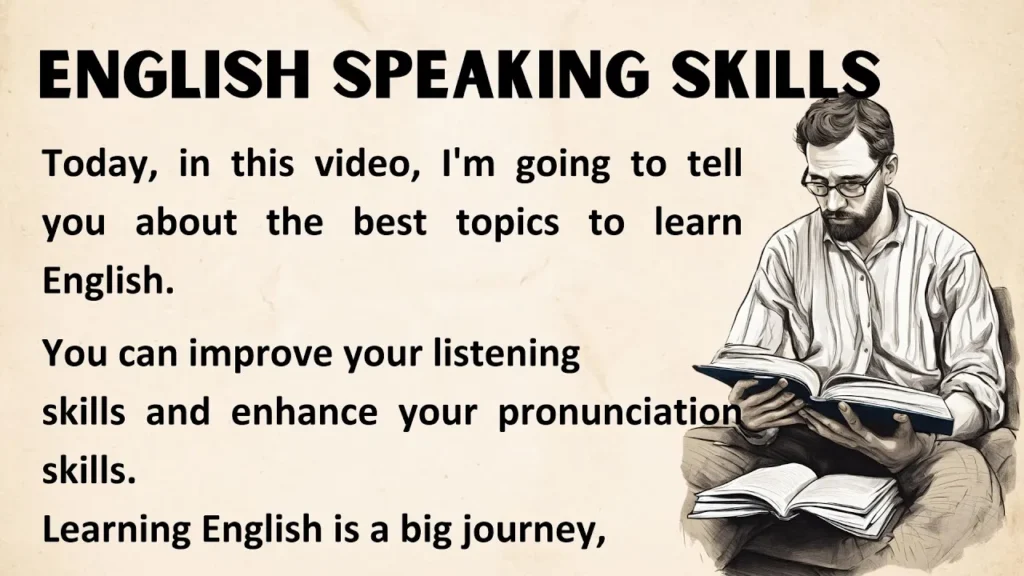
Learning to speak English can feel overwhelming at first, especially if you’re just beginning your journey. You might understand some words but feel nervous or unsure when trying to speak. Don’t worry — you’re not alone. Every fluent speaker once started exactly where you are now.
This article is your step-by-step guide to English speaking practice for beginners. Whether you’re a student, traveler, or working professional, these simple, practical steps will help you start speaking English with confidence — one day at a time.
Step 1: Start with Simple Words and Phrases
Don’t try to learn everything at once. Begin with everyday words and useful phrases:
Hello, how are you?
My name is [Your Name].
I like coffee.
Where is the bathroom?
Learn and repeat these phrases daily. Practice saying them aloud and try to use them in real or imaginary conversations.
✅ Tip: Use flashcards or apps like Duolingo or Memrise to build vocabulary quickly.
Step 2: Listen and Imitate
Listening is the foundation of good speaking. Choose easy English videos, songs, or podcasts. Then:
Listen carefully.
Repeat what you hear.
Try to copy the tone and pronunciation.
This method is called shadowing, and it’s one of the best ways to sound natural in English.
🎧 Start with channels like BBC Learning English, Speak English with Mr. Steve, or EnglishClass101 on YouTube.
Step 3: Practice Speaking Every Day
Make speaking English a daily habit, even if it’s just for 5–10 minutes. Talk about:
What you’re doing: “I am brushing my teeth.”
What you see: “The sky is blue.”
Your feelings: “I feel happy today.”
Speaking out loud, even when you’re alone, trains your brain to think in English.
✅ Bonus: Talk to yourself in front of a mirror to improve fluency and confidence.
Step 4: Use Speaking Practice Apps
Technology makes learning English easier than ever. Try beginner-friendly apps like:
Elsa Speak – Helps you improve pronunciation.
Hello English – Great for learners in South Asia.
Cake – Offers real conversations and video-based speaking lessons.
Tandem or HelloTalk – Connect with real people around the world for language exchange.
These tools give you instant feedback and help build confidence in speaking.
Step 5: Join a Beginner-Friendly Speaking Group
Find other English speaking practice at your level. You can:
Join online conversation clubs
Use Facebook groups or Meetup.com
Start a small practice group with friends
Speaking with others, even for 10–15 minutes weekly, boosts your speaking confidence and helps you learn new words in context.
Step 6: Record Your Voice
This is a powerful self-check method. Try this:
Record yourself introducing your name and hobbies.
Listen to it.
Note what sounds good and what needs improvement.
Try again after a week to hear your progress.
This also helps with pronunciation, fluency, and self-awareness.
Step 7: Learn English Sentences — Not Just Words
Learning full sentences helps you use new words correctly. For example:
Instead of just learning “hungry,” learn “I am hungry.”
Instead of “water,” learn “Can I have some water, please?”
This helps you speak more naturally and avoid grammar mistakes.
Step 8: Practice Conversations
You don’t need a teacher to practice dialogue. Here’s how:
Imagine a situation (e.g., in a restaurant)
Write a short script:
A: Hello, can I see the menu?
B: Yes, here it is.
A: I’ll have a sandwich and coffee.
B: Coming right up!
Practice both roles aloud. This builds confidence for real-life conversations.
Step 9: Don’t Be Afraid to Make Mistakes
Every beginner makes mistakes. That’s normal — and important! Mistakes help you:
Learn new rules
Understand how English works
Get better over time
Remember, native speakers will appreciate your effort and are usually happy to help.
💡 Mistake = Learning. Speak more, fear less.
Step 10: Stay Consistent and Have Fun
The key to success is daily practice. Even 10 minutes each day adds up. Combine speaking with activities you enjoy:
Sing along to English songs
Describe your favorite movie in English
Talk about your dreams and goals aloud
Make English part of your life — not just a subject in school.
Final Thoughts
Learning to speak English takes time, practice, and patience, especially in the beginning. The most important step is just to start — and keep going. Use this beginner’s guide to build a strong foundation in speaking, one step at a time.
No matter your age or background, you can become a confident English speaker. Believe in yourself, speak out loud, and enjoy the journey.






